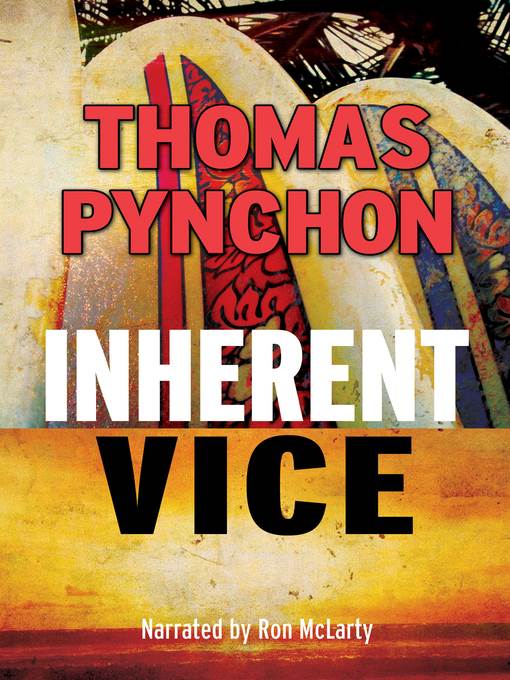
Inherent Vice
فرمت کتاب
audiobook
تاریخ انتشار
2009
نویسنده
Ron McLartyناشر
Recorded Books, Inc.شابک
9781456110901
کتاب های مرتبط
- اطلاعات
- نقد و بررسی
- دیدگاه کاربران
نقد و بررسی

Ron McLarty's rough but honeyed voice is ideal for a story built around Doc Sportello, an aging P.I. who means to feel groovy no matter what. And yes, by groovy, he often just means stoned. Like Doc, McLarty's seen and read a lot, having recorded more than 100 books and won many AUDIOFILE Earphones Awards. He's even a bestselling novelist himself. Thomas Pynchon's also been around, having won the National Book Award for GRAVITY'S RAINBOW in 1974. An author best known for dense writing that makes readers scratch their heads, he's switched genres, here writing a crime novel set in California in the drug-rich 1970s. It's an intoxicating compound of disciplined prose and dissolute characters. Even the wicked amuse. B.H.C. (c) AudioFile 2009, Portland, Maine

Starred review from July 6, 2009
Pynchon sets his new novel in and around Gordita Beach, a mythical surfside paradise named for all the things his PI hero, Larry “Doc” Sportello, loves best: nonnutritious foods, healthy babies, curvaceous femme fatales. We’re in early-’70s Southern California, so Gordita Beach inevitably suggests a kind of Fat City, too, ripe for the plundering of rapacious real estate combines and ideal for Pynchon’s recurring tragicomedy of America as the perfect wave that got away.
It all starts with Pynchon’s least conspicuous intro ever: “She came along the alley and up the back steps the way she always used to”—she being Doc’s old flame Shasta, fearful for her lately conscience-afflicted tycoon boyfriend, Mickey. There follow plots, subplots and counterplots till you could plotz. Behind each damsel cowers another, even more distressed. Pulling Mr. Big’s strings is always a villain even bigger. More fertile still is Pynchon’s unmatched gift for finding new metaphors to embody old obsessions. Get ready for glancing excursions into maritime law, the nascent Internet, obscure surf music and Locard’s exchange principle (on loan from criminology), plus a side trip to the lost continent of Lemuria. But there’s a blissful, sportive magnanimity, too, a forgiveness vouchsafed to pimps, vets, cops, narcs and even developers that feels new, or newly heartfelt. Blessed with a sympathetic hero, suspenseful momentum and an endlessly suggestive setting, the novel’s bones need only a touch of the screenwriter’s dark chiropractic arts to render perhaps American literature’s most movie-mad genius, of all things, filmable.
Inherent Vice
deepens Pynchon’s developing California cycle, following The Crying of Lot 49
and Vineland
with a shaggy-dog epic of Eden mansionized and Mansonized beyond recognition—yet never quite beyond hope. Across five decades now, he’s more or less alternated these West Coast chamber pieces with his more formidable symphonies (V
; Gravity’s Rainbow
; Mason & Dixon
; Against the Day
). Partisans of the latter may find this one a tad slight. Fans of the former will know it for the throwaway masterwork it is: playful as a dolphin, plaintive as whale song, unsoundably profound as the blue Pacific.

























دیدگاه کاربران